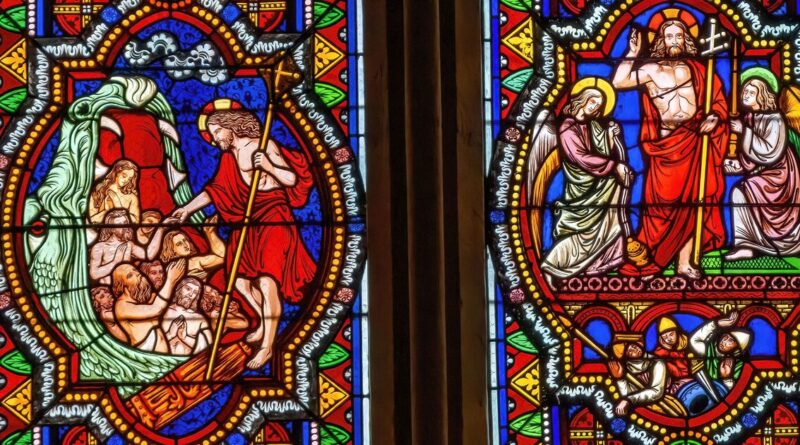Why young people are excited about Jesus Christ | Express Comment | Comment
Visiting a church recently, I met a young woman, still reeling from a divorce, being let down by her husband, and now having to share her three children with him living far away. She had turned to alcohol to numb the pain, but it didn’t work. In desperation she whispered a prayer: “God, if You’re real, help me. I can’t do this anymore.”
What happened next took her by surprise: “A peace I had never known before wrapped around me. I felt like I was being held, like someone had been waiting for me to surrender all along. I slowly let go of the addictions, the desperate need for validation, the belief that I had to fix everything on my own. God began healing my heart, showing me that His Love was enough, that I didn’t have to keep chasing after things that could never fill me.”
It’s a story I keep hearing from clergy friends in parishes across the country. Now there is data to back it up. A recent report commissioned by the Bible Society suggested that the number of people going to church has risen by 50% over the last six years, a change led primarily by young adults, and especially young men. In 2018, 4% of 18-24 year olds went to church at least once a month. That figure is now 16% in general, and 21% amongst young men.
Now, statistics don’t prove anything. If Christianity is true, it is true whether or not people believe it. The popularity of the faith has waxed and waned over the centuries, from times when a few hardy souls braved the fires of persecution, often paying for their faith with their lives, to the times when huge numbers flocked into the churches as the fashionable thing to do.
And yet this turning to church in our times does tell us something significant. This weekend, Christians across the world are celebrating Easter, focussed around their belief that Jesus Christ rose from the grave. Their point is not that this was a one-off miracle, but it was like the first man through a breach in a wall for others to follow.
There was something on the other side of death, and those who put their faith in Christ would, when it came their turn to die, be one day resurrected into the new world which was to come, a world free of suffering, pain and despair. Of course, Christians have always been asked to prove this. Yet by definition, it is hard to prove.
The Resurrection is not a normal event in the course of human history, like an election victory, or the growth of a flower, that you can explain by social trends or a gardener planting a bulb in early spring. The Resurrection was an interruption to the normal course of history from the outside, the ‘intersection of the timeless with time’ as TS Eliot put it.
The early Christians knew this and so they pointed to something else as a sign of the reality of resurrection – the impact it had on people. St Athanasius, one of the great early Christian writers, claimed that one of the signs that Jesus Christ was alive was that he was busy changing the lives of people, giving them new priorities and new hope, “invisibly persuading people all over the world… to accept his faith and be obedient to his teaching.”
Of course this doesn’t provide scientific proof. But perhaps the ongoing vitality of the Christian faith is a sign that it might just be true. In time, false ideas and ideologies tend to fade and disappear. Christianity, however, despite the many times when it seemed to be on the verge of extinction, has proved surprisingly resilient. Just like the dead body of Jesus, whenever the powers that be thought they had finished it off and nailed it down, it has shown a surprising capacity to be reborn.
Over the past century or so, the Christian church has continued to grow in non-western contexts in Asia, in South America and Africa. Here in the West, we are the exception. Yet even here, if young people, tired of failed secular ideologies, are turning back to the church, maybe this is a sign that the Resurrection of Jesus is the turning point of history after all.





